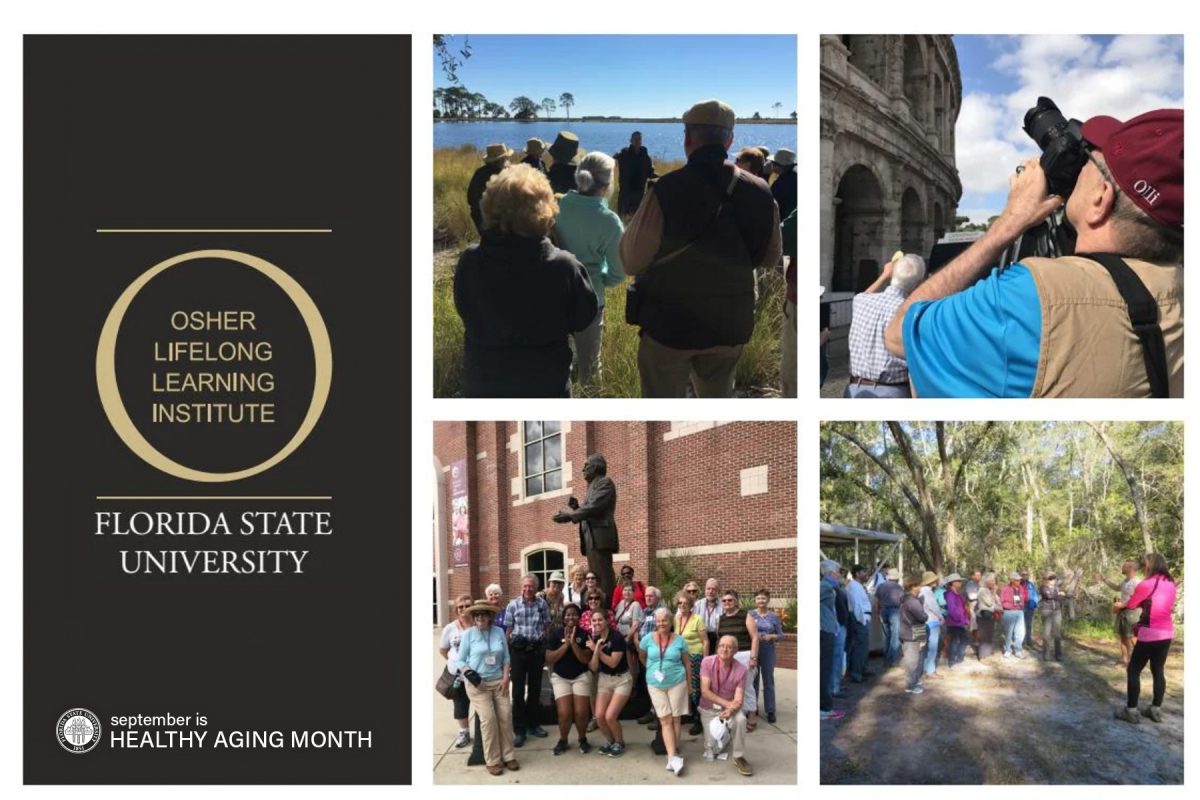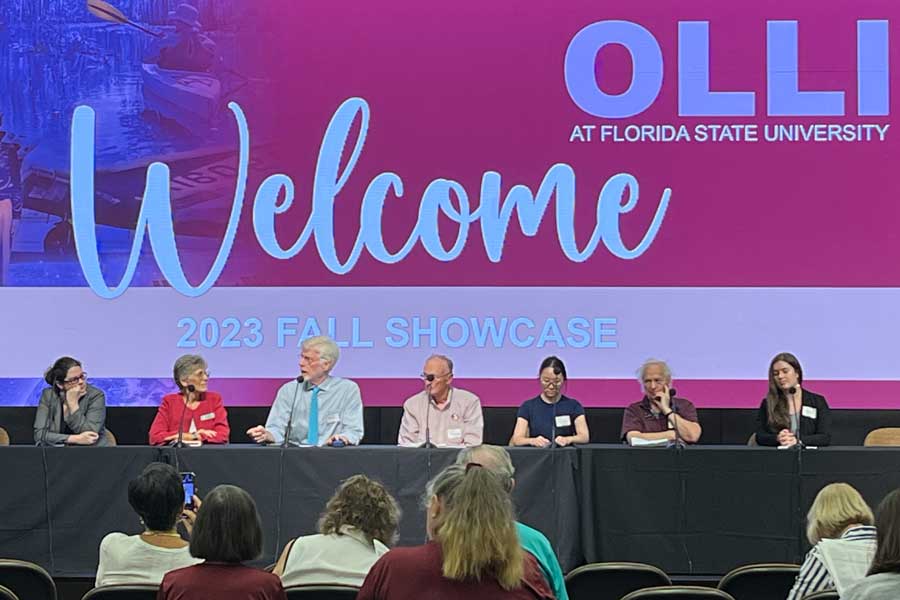
September is Healthy Aging Month but at the Osher Lifelong Learning Institute (OLLI) at Florida State University healthy aging is a year-round pursuit.
Housed in FSU’s Claude Pepper Center, OLLI extends its reach beyond campus through a host of programs, clubs, group travel and courses all aimed at helping adults over 50 continue to learn and grow.
The goal tying OLLI’s offerings together is to keep older adults engaged, said Fran Conaway, who has been an active OLLI participant and volunteer since 2011.
Founded in 1991, OLLI addresses three main needs for its members in offering programming that challenges them mentally, physically and provides opportunities for social interaction.
“We have fun while accepting the challenges,” Conaway said of OLLI’s membership. “We enjoy the courses in ways that perhaps you might not when you’re an undergraduate or graduate student. There are no grades, no tests and no required reading. Our instructors love us because we take the work seriously and we’re unafraid to challenge them.”
Conaway added: “In addition to academics, we take trips. We have a walking club, two book clubs, social opportunities and travel around the world. Through it all, we laugh together.”
With a rolling membership that hovers around 1,000, OLLI’s fall, spring and summer courses are perhaps its biggest draw. About half of the courses are taught by former and current FSU faculty and researchers, while career professionals from outside academia also bring their expertise to bear.
The breadth of subject matter offered semester-to-semester mirrors what one might find in a college course bulletin, including physics, advanced mathematics, technology, photography, art appreciation, journalism and theater.
Asked some of the more memorable courses she’s taken, Conaway provided a list of 34 titles, including The History of Greed, The Music of Paul Simon, Buddhist Meditation,
Epigenetics, and Putin’s Russia: The Less You Know, the Better You Sleep.
“It’s a wild, wide array of courses taught through the years,” said Conaway. “I am hoping for something soon on ChatGPT so we can learn how to use it ourselves or identify when somebody else uses it unfairly so you can call foul on it.”

Robert Watkins, a professor of mathematics at Keiser University teaches “The Mad Hatter’s Tea Party” which analyses Lewis’ Carroll’s classic novel “Alice’s Adventures in Wonderland” through a multi-disciplinary lens. In addition to being an author and poet, Carroll was a math professor at Oxford University in England; his works encompass theology, logic and a host of other fields.
Watkins takes full advantage of that variety by using Carroll’s work as a launch point for an expanse of topics. Like any true English tea party, Watkins offers tea, crumpets, savories and sweets, served on ornate China tea sets each class.
“It’s an insanity all its own,” Watkins said of the tea party.
Watkins is set to teach the course for his eighth time this spring and said, in addition to a lifelong love of teaching, the OLLI students are what keep him coming back.
“They are the best students I’ve ever had,” he said. “They are all there for intrinsic reasons. There are no grades. They aren’t earning a certificate. They bring an interest, and thoughtful, well-formed opinions to each class.”
Whether it’s through a trip to Florence, Italy, or a meeting of the Spanish Club in Tallahassee, OLLI participants find a community and often a purpose, said OLLI Program Coordinator Terry Aaronson.
“I had one woman tell me that OLLI saved her life,” Aaronson said. “People retire and they often aren’t sure what to do. At OLLI, there are so many offerings, so many things you can do to stay engaged socially, mentally and physically.”
A combination of membership fees, donations and endowments from the Bernard Osher Foundation help provide OLLI’s budget. Aaronson also credited FSU and the Pepper Center for laying the foundation for OLLI to make an impact by providing crucial elements like classrooms and meeting space.
“Without these things we wouldn’t be able to run the program,” she said, before noting that OLLI’s impact permeates the community. “Our members have formed their own weekly meeting groups and social circles. OLLI is a big part of the community,”
Conaway echoed Aaronson, saying that lifelong friendships are a feature of OLLI and that starts with its members.
“If there is fun to be had, we are going to make it happen,” she said.
For more information about OLLI, visit olli.fsu.edu.



